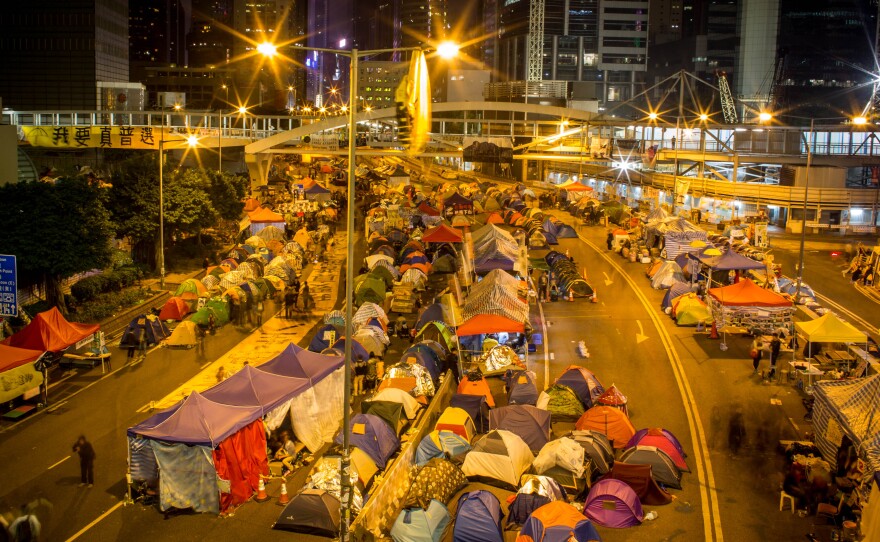After two-months worth of pro-democracy demonstrations that at times paralyzed Hong Kong, authorities are warning that they will clear protesters from a campsite blocking a main road near government headquarters on Thursday.
The Admiralty protest site is the last bastion of a protest movement come to be known as the Umbrella Revolution.
"Thousands of police will move in on the site in Admiralty, next to the Central business district, after two and a half months of road blockades and sporadic violent scuffles in the former British colony that returned to Chinese rule in 1997."The protests, that have taken hold on both sides of the harbor, represent the most serious challenge to China's authority since the 1989 pro-democracy demonstrations and bloody crackdown in and around Beijing's Tiananmen Square. "'We can't guarantee there won't be any confrontations,' Chief Secretary Carrie Lam, Hong Kong's number two official, told reporters. 'I appeal to the protesters who have been illegally occupying our roads to pack up their belongings and to leave the protest sites.'"
The South China Morning Post reports that some of the student protesters at the Admiralty are planning on one final sit in.
The paper reports:
"While the bailiffs will execute an injunction covering one-fifth of the Admiralty camp, police said they would start clearing the entire camp and the Causeway Bay site tomorrow, deploying 7,000 officers in two shifts. "'We will sit outside the injunction area. We will stay true to the spirit of civil disobedience - remain peaceful and bear the legal consequences of our action,' Chow said yesterday, a week after the federation's failed bid to blockade government headquarters. Government staff have been told not to go to the offices in Admiralty tomorrow. "The federation will ask those who have reservations about the plan to leave the site. But it wants those willing to face legal consequences for taking part in the movement to return to Admiralty tomorrow morning. The sit-in would 'mark the end of this phase of the occupation', he said."
Copyright 2014 NPR. To see more, visit http://www.npr.org/.






